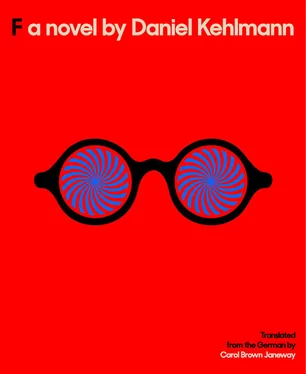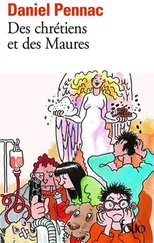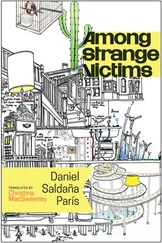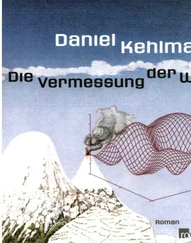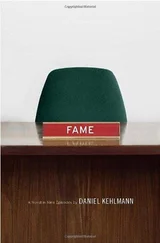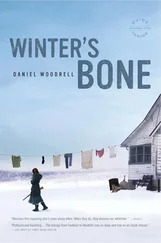He immediately pretended he didn’t understand me. He likes doing that — it amuses him. What did I mean, “sure thing”?
“Sure thing,” I said, “means that it impresses everyone. That no expert has something against the artist. Like with Picasso. Or Leonardo. One of those guys.”
He laughed at me. He likes doing that too. Picasso? There were hundreds of experts who didn’t take Picasso seriously, and if you chose one of his wrong periods, you’d be criticized willy-nilly. Almost no one had a good word to say about his late work, for example! But Paul Klee, you could get one of his, no one had anything against Paul Klee.
“And Leonardo?”
“No Leonardos on the market. Take Klee.”
Then he attended the auction for me. At half a million he called me to ask if he should keep bidding. I would like to have yelled at him. But what if he thought I couldn’t even afford a matchstick man? For a while it hung in the salon, then Laura suddenly didn’t like it anymore. So since then it’s been hanging over my desk, staring at me in a pushy way and doing damage in my dreams. I can’t sell it, too many people have seen it in the salon where I have of course pointed it out to them, look at my Klee, what do you think of my Klee, yes of course it’s genuine! As soon as the investigators start work, one of their first questions will be where the Klee is. Art is a trap, nothing more, cleverly dreamed up by people like my brother!
Still in my bathrobe I go along the hall and down the stairs to the media room. There’s a screen and a video beamer. The black cubes of the speakers are powerful enough to service a football stadium. A soft leather couch sits in front of it.
The remote is lying on the table. Without thinking about it I sit down, reach for it, and press a couple of buttons. The screen hums into life: the early-morning TV programming — a nature film. A dragonfly lands on a stalk. Its legs are no bigger than a hair, its wings tremble, and its antennae touch the rough green. Interesting, but it reminds me about the camera.
There’s one hidden in one of the appliances. It would be strange if there weren’t one, because they’re so easy to conceal, I would never find it among all the lenses. I push another button, the meadow disappears, to be replaced by some undersecretary standing behind a lectern and talking so fast that you’d think everything must hang on his finishing as fast as possible.
“No,” I say. “No, no, no, no. No!”
Luckily that helps. He slows down.
But unfortunately he’s noticed me. Without stopping talking, he casts a swift glance in my direction. He did it very unobtrusively, but it didn’t escape me.
I hold my breath. I must not make a wrong move now. Without question it’s crazy, I know it, the broadcast with the undersecretary is a recording, nobody gives press conferences this early in the morning.
But I also know that he looked at me.
“Totally calm. Always keep calm.”
With cold terror I realize that I said it out loud. I can’t make this kind of mistake. And the undersecretary, whose name I suddenly recall — he’s called Obermann, Bernd Richard Obermann, and he’s responsible for power or education or something — heard it, for a mocking smile appears for a moment on his face. I don’t let anything show; I don’t lose my cool so easily. Keep calm, I say to myself again, but this time silently and without moving my lips, behave as if everything’s fine! Somehow I have to manage to look away from the screen. I concentrate on the edge of my field of vision, and then somewhat blurrily I see something on the carpet, a disturbance in the symmetry: a red wine stain. Damn it, this carpet cost thirty-five thousand euros!
My fury helps me to look away from the screen. Out of the corner of my eye I register that Undersecretary Obermann has disappeared. Some harmless man is now talking into the microphone and has no interest in me. Quickly I lift the remote, the picture flames up for a moment and is gone.
That was a close-run thing. I stand up, notice someone in the doorway, and jump back.
“Did I frighten you?”
“No, of course not. No, no. No!” I look at my daughter, my daughter looks at me, and to say something I ask, “Do you have a test to take today?”
“Yes, in math.”
I congratulate myself, now I’m behaving like a father who has a grip on things and takes part, while all I know is that children are always having to take tests for school. Something mean is always in the offing, and every day is certain to bring its own unpleasantness.
“Do you know anything about this red wine stain?”
She shakes her head.
“If it was you, it’s okay to tell me. You won’t be punished.”
“I don’t drink wine!”
She said it charmingly. I would love to kiss her now on both cheeks, but I think about the camera and leave things be. “And?” I ask instead. “Learned it all? Well prepared?”
She shrugs her shoulders as if she doesn’t believe I’d be interested. This upsets me. Because even though it really doesn’t interest me, I do my best to act like it matters.
I notice a tiny spider — a little dot working its way up the wall by the door. What does it live off, what does it eat, what does it drink, or don’t spiders drink? I would like to ask Marie, she’s bound to learn things like that in school, but instead I ask, “What’s up for today? Have you got as far as differential calculus?”
“What’s that?”
“You don’t know?”
“I’m ten, Papa.”
She has an answer for everything. Meanwhile the spider has worked its way over to the other side of the door; how did it get there so fast?
“What?” she asks.
“ ‘Excuse me.’ You must say ‘Excuse me,’ not ‘What.’ ”
“Excuse me?”
“What?”
“What sort of spider, Papa?”
Did I talk out loud? For heaven’s sake!
“You said—”
“No!”
“But you did—”
“I didn’t say a word!”
That came out too loud. I don’t want to frighten my daughter, and I mustn’t forget the camera. Stricken, I run my hand over Marie’s head. She smiles at me, then turns around and leaves, the way children always do, with a hop, a step, and a leap.
“Hurry up!” I call after her. “You’re late, school’s about to start!” I have no idea when school starts. But it’s bound to be true.
What will she think of me when I’m in prison? On the way to the dressing room upstairs I ask myself yet again why I don’t pluck up the courage to cut things short. So many have managed it: guns, pills, a leap from a high window. Why not me?
I’m actually too strong. Being strong isn’t just an advantage. You can tolerate more, you can get into even deeper trouble, and it’s harder to give up. The washed-out, the empty, and the spineless, who have nothing to lose if they lose themselves, can all just hang themselves someplace. But there’s something inside me that won’t allow that.
I like being in my dressing room, there are very rarely problems in here. Seventeen black bespoke suits hang in a row, thirty-nine white shirts are stacked on the shelves, and the tie rack holds twenty-five flawless ties in the selfsame shade of red. Sometimes people give me other ties, mostly with sophisticated patterns, and I throw them away. I have one black one, for funerals. On the floor there are twenty-one pairs of well-polished shoes.
It’s weekends that are hard. On your free days you can’t wear a suit, nor can you keep wearing the same checked shirt. It would be sensible and rational, so of course if you did it people would think you were weird. So I have a closet for weekends, days off, and holidays. In it are all kinds of colorful shirts: solid colors, checked, striped, even one with dots. Laura doesn’t like it, but I claim it’s my favorite. People ought to have a favorite shirt, it’s expected, it’s appealing. The closet also houses jeans, corduroys, leather belts, every kind of jacket, sports shoes, hiking shoes, fishing boots, though I’ve never been fishing and have no intention of ever changing that.
Читать дальше
